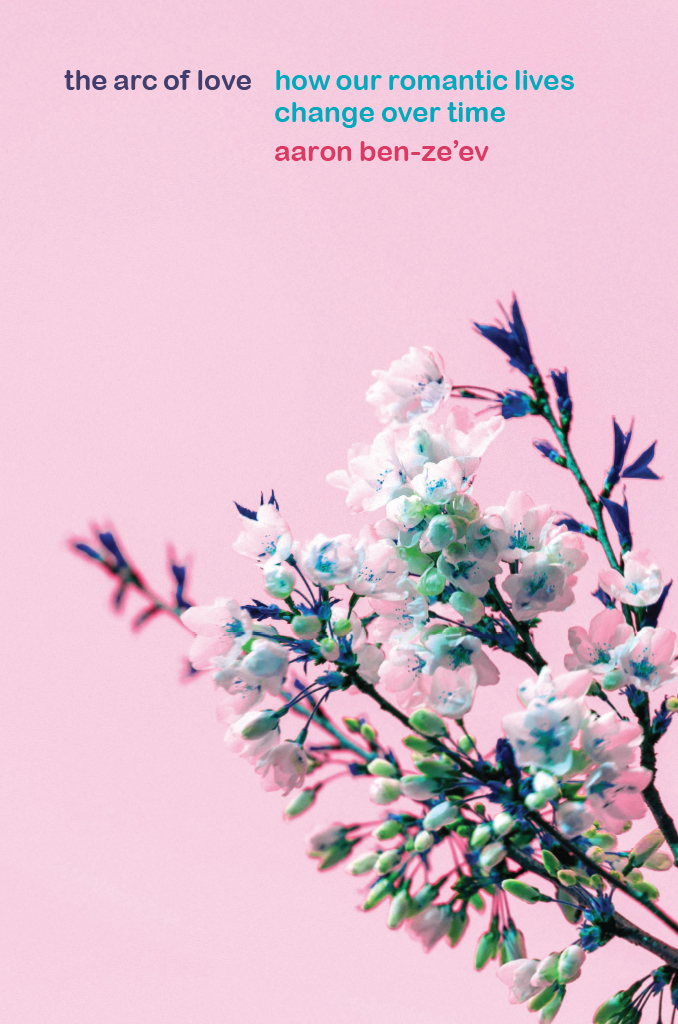
The Arc of Love
The Arc of Love
How Our Romantic Lives Change over Time
AARON BEN-ZEEV
The University of Chicago Press
Chicago and London
The University of Chicago Press, Chicago 60637
The University of Chicago Press, Ltd., London
2019 by The University of Chicago
All rights reserved. No part of this book may be used or reproduced in any manner whatsoever without written permission, except in the case of brief quotations in critical articles and reviews. For more information, contact the University of Chicago Press, 1427 E. 60th St., Chicago, IL 60637.
Published 2019
Printed in the United States of America
28 27 26 25 24 23 22 21 20 19 1 2 3 4 5
ISBN -13: 978-0-226-63390-9 (cloth)
ISBN -13: 978-0-226-63406-7 (e-book)
DOI : https://doi.org/10.7208/chicago/9780226634067.001.0001
Library of Congress Cataloging-in-Publication Data
Names: Ben-Zeev, Aharon, author.
Title: The arc of love : how our romantic lives change over time / Aaron Ben-Zeev.
Description: Chicago : The University of Chicago Press, 2019. | Includes bibliographical references and index.
Identifiers: LCCN 2018055500 | ISBN 9780226633909 (cloth : alk. paper) | ISBN 9780226634067 (e-book)
Subjects: LCSH: Love. | LovePhilosophy.
Classification: lcc BF 575.l8 B 349 2019 | DDC 306.7dc23
LC record available at https://lccn.loc.gov/2018055500
 This paper meets the requirements of ANSI / NISO Z 39.481992 (Permanence of Paper).
This paper meets the requirements of ANSI / NISO Z 39.481992 (Permanence of Paper).
Contents
Love and eggs are best when they are fresh.
RUSSIAN PROVERB
This book is about long-term romantic love and how we go about developing itor fail to do so. It is about building the foundations for such love and dealing with the difficulties that inevitably emerge in such a challenging and critical construction project. The reader will discover the good news that there is no reason to despair: enduring love can be achieved. And, as we shall see, time plays a leading role in this process.
I take an optimistic perspective. Not only is enduring, profound love possible; it is also more common than most of us think. Yet the romantic road is often bumpy and long. Enticing romances encounter many blind alleys. How is the would-be lover to know when such romances are promenades for flourishing love and when they are dead-end streets? In these pages, I provide some helpful signposts along the freeway of love.
Love is not all you need; but if you have enough of what you need, and love infuses life with joy, your life is more likely to be a many-splendored thing.
The Possibility of Long-Term Romantic Love
There is only one serious question. And that is:... how to make love stay?
TOM ROBBINS
The endurance of romantic love has been debated from time immemorial. Despite this fact, however, we still do not have a handle on how love survives time.
In the field of philosophy, the discussion has centered on the question of whether love is conditional, that is, whether it is dependent on anything. Aristotle, for instance, believed that it is; according to him, love can end if the beloved changes for the worse. Other philosophers, notably Plato and Emmanuel Levinas, considered love to be unconditional; in their view, love can last for a lifetime. In the field of psychology, one also finds conflicting views concerning the possibility of long-term romantic love. In this introductory chapter, I discuss some central issues that have bearing on these questions, such as the role of change and familiarity in love, the basic human drive to yearn for the possible, and the conflict between love and life.
Will You Love Me Tomorrow?
Tonight youre mine, completely... but will you love me tomorrow?
CAROLE KING
Carole King asks the burning question of the romantic lover: Will you love me tomorrow? In other words, Will the feeling that I am your beloved last only until the morning sun rises, or will it last for many years? To this question, we might add our own: Must romantic love endure over time in order to be considered profound? Can brief romantic affairs be fully satisfied?
As a young boy, I devoured Gustave Flauberts Madame Bovary (1856) and Amos Ozs My Michael (1968). These romantic tragedies served as cautionary tales, warning of the consequences to passion withering and love dying. Take the undoing of Emma Bovary, who tries to relieve the banality of her life through a series of adulterous affairs. Ultimately rejected by her lovers and deep in debt, Emma swallows arsenic. Like her, Hannah Gonen (Michaels wife) is drenched in dreams but stunted by her marriage to an unimaginative man. As time goes on, her marriage deteriorates into sadness and depression, and her dreamsalong with her sanityare quashed.
Emma and Hannah appear to be victims of a myth, a dangerous romantic ideology enshrined in both our recordings and our rituals: true love overcomes all obstacles (There aint no mountain high enough to keep me from getting to you); and love lasts forever (till death us do part). This seductive notion assumes both the uniqueness of the beloved and a kind of fusion. Soulmates are meant only for each other: lovers form a single entity, and each of the partners is irreplaceable. The lovers attention is focused on nothing but the beloved (When a man loves a woman, cant keep his mind on nothing else). Ideal love is total, uncompromising, and unconditional. Hell might be freezing over, but true love will endure.
While such romantic ideology retains its allure, the idea that passion can last a lifetime has lost its luster in modern times. We have all witnessed an increasing gap between the desire for an enduring romantic relationship and the probability of its fulfillment. Breakups, not long-term relationships, are the norm. In many societies, about half of all marriages end in divorce, and many of the remaining half have at some point seriously considered divorce. Love is a trade-off, the prevailing wisdom goeswe can either soar briefly to the highest heights of passion, or we can be content with a meaningful friendship for many years. Is it then fruitless to despair, as do Emma and Hannah, because having both is impossible?
And yet... popular culture celebrates long-term love. Moreover, most people, including the current generation of adolescents, continue to believe in the possibility of such love. A survey of young adults (ages 1829) in the United States revealed that the vast majority holds highly optimistic views about marriage, with 86 percent expecting to have a marriage that lasts a lifetime. However, such love is under attack in contemporary society, where novelty rules, and change is the absolute order of the day. Thus, we are confronted with a paradox: the ideal of love demands that it be endless, lasting until the sun shines no more, while our lives are littered with crumbling relationships.
Confusing Findings
Nothing in mating remains static. Evolution did not design humans for lifelong matrimonial bliss.
DAVID BUSS
Been with my wife for more than 25 years. We had 2 children together. I love her today more than I ever have. The thought of growing old with her brings me comfort. Yes, love can survive and flourish!
CHRIS CURTIS
A large body of research indicates that sexual desire decreases dramatically over time within relationships. Thus, ones sexual response to a familiar partner will be progressively less intense than such response to a novel partner. Unsurprisingly, then, the frequency of sexual activity with ones partner tends to decline steadily as the relationship lengthens. After one year of marriage, couples tend to be half as sexually active together as they were during their first month of marriage, with sex declining more gradually thereafter. A similar pattern of decline has also been found among cohabiting heterosexual couples and among gay and lesbian couples. Hence, enduring romantic love seems to be uncommon, usually evolving into companionate love in which sexual desire grows weaker as time passes.
Next page
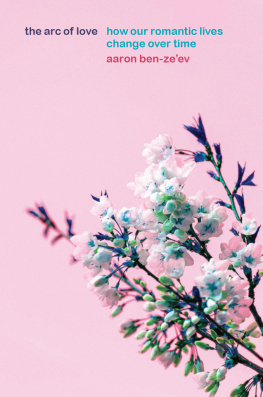

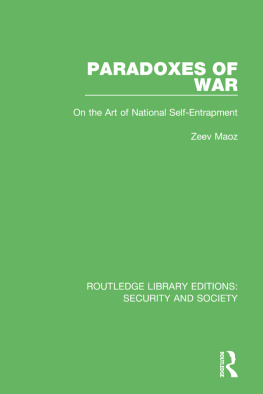

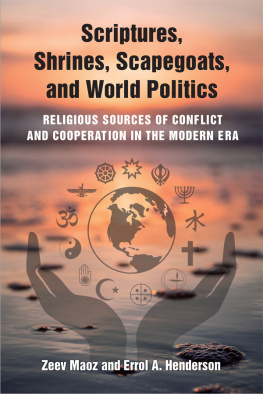
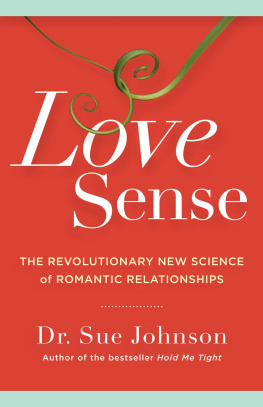
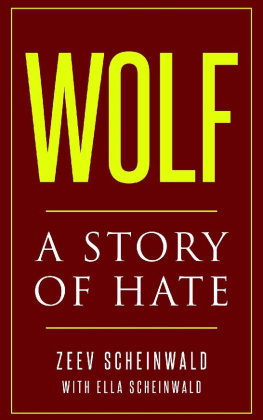
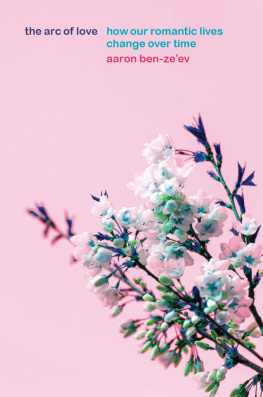
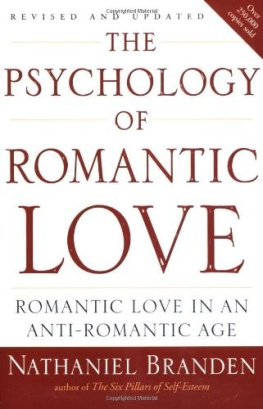

 This paper meets the requirements of ANSI / NISO Z 39.481992 (Permanence of Paper).
This paper meets the requirements of ANSI / NISO Z 39.481992 (Permanence of Paper).